News
-
 Quantum Physics
Quantum PhysicsQuantum tractor beam could tug atoms, molecules
The wavelike behavior of quantum particles could be harnessed to move atoms.
-
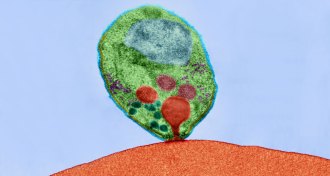 Genetics
GeneticsHybrid protein offers malaria protection
Rare hybrid protein that spans red blood cell membranes offers some protection against malaria.
-
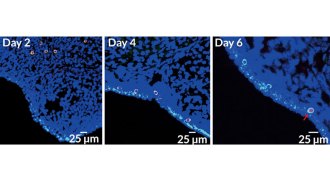 Health & Medicine
Health & MedicineTransplanted stem cells become eggs in sterile mice
Sterile mice that received transplanted egg-making stem cells were able to have healthy babies.
-
 Environment
EnvironmentWhen it’s hot, plants become a surprisingly large source of air pollution
During a heat wave, trees and shrubs can sharply raise ozone levels, a new study shows.
-
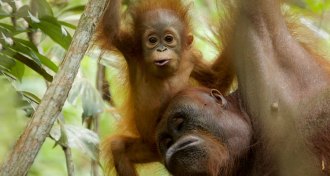 Animals
AnimalsOrangutans take motherhood to extremes, nursing young for more than eight years
Weaning in orangutans has been tricky to see in the wild, so researchers turned to dental tests to reveal long nursing period.
By Susan Milius -
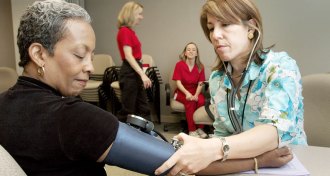 Health & Medicine
Health & MedicineWhere you live can affect your blood pressure, study suggests
For black adults, moving out of a racially segregated neighborhood is linked to a drop in blood pressure, a new study finds.
-
 Physics
PhysicsNaked singularity might evade cosmic censor
Physicists demonstrate the possibility of a “naked” singularity in curved space.
-
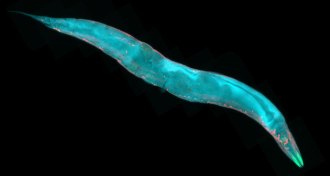 Genetics
GeneticsSelfish genes hide for decades in plain sight of worm geneticists
Crossing wild Hawaiian C. elegans with the familiar lab strain reveals genes that benefit themselves by making mother worms poison offspring who haven’t inherited the right stuff.
By Susan Milius -
 Planetary Science
Planetary ScienceWatery exoplanet’s skies suggest unexpected origin story
Compared with Neptune, HAT-P-26b’s atmosphere has few heavy elements, suggesting it formed differently than the ice giants in Earth’s solar system.
-
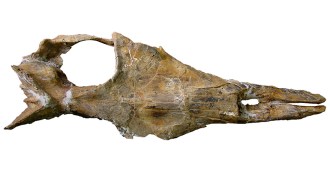 Paleontology
PaleontologyAncient whale tells tale of when baleen whales had teeth
A 36 million-year-old whale fossil bridges the gap between ancient toothy predators and modern filter-feeding baleen whales.
-
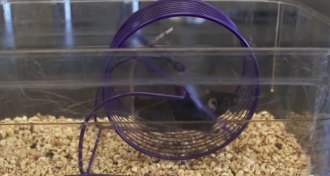 Health & Medicine
Health & Medicine‘Exercise pill’ turns couch potato mice into marathoners
An experimental "exercise in a pill" increases running endurance in mice before they step foot on a treadmill.
By Laura Beil -
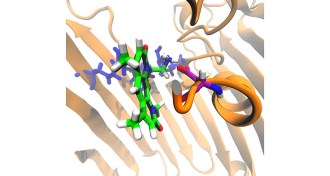 Health & Medicine
Health & MedicineNew rules for cellular entry may aid antibiotic development
A new study lays out several rules to successfully enter gram-negative bacteria, which could lead to the development of sorely needed antibiotics.